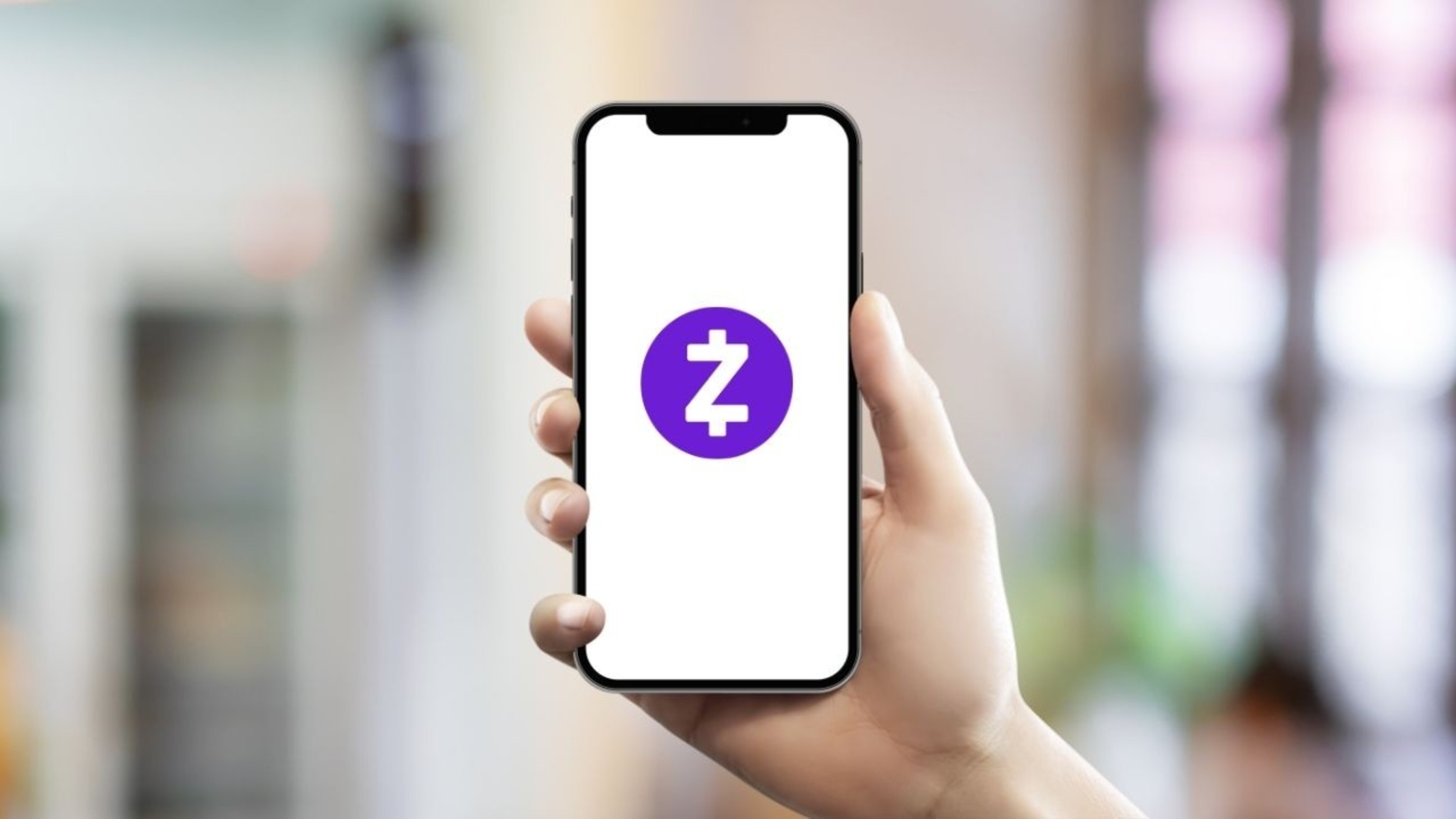Introduction
When it comes to transferring money from one bank account to another, one of the most common concerns people have is how long the process will take. Whether you’re sending money domestically or abroad, the estimated time for the funds to reach the recipient’s account can vary.
Bank money transfer time can be influenced by several factors, such as the type of transfer, the financial institutions involved, and any additional security measures that may be in place. Understanding these factors can help set realistic expectations and ensure a smooth transfer process.
In this article, we will explore various factors that can affect the time it takes for a bank money transfer. We will address different types of transfers, including domestic and international transfers, as well as wire transfers and online money transfer services. Additionally, we will discuss how to expedite the transfer process and provide tips for same-day bank money transfers when time is of the essence.
It’s important to note that while we will provide general information about typical transfer times, the specific duration can vary from one bank and country to another. Factors such as weekends, public holidays, and different time zones can also impact the overall transfer time. With that said, let’s delve into the details and explore the world of bank money transfers.
Factors that Affect Bank Money Transfer Time
Several factors can influence the duration of a bank money transfer. Understanding these factors can help manage expectations and potentially expedite the transfer process. Here are a few key elements that can affect the time it takes for funds to be successfully transferred:
- Bank Policies: Each bank has its own internal policies and procedures for handling money transfers. These policies can vary in terms of processing times, cut-off times for same-day transfers, and any additional verification processes that may be required.
- Transaction Type: The type of transaction you’re conducting can impact the transfer time. Different types of transfers, such as wire transfers or online transfers, may have varying processing times.
- Amount and Currency: The amount of money you’re transferring and the currency involved can also influence transfer times. Large transactions or transfers involving rare or exotic currencies may require additional verification or processing steps, which can extend the overall transfer time.
- Recipient’s Bank Policies: The policies and operational procedures of the recipient’s bank can also play a role in the transfer time. If the recipient’s bank has strict security measures or operates on a different schedule, it may cause delays in processing the incoming funds.
- Public Holidays and Weekends: The occurrence of public holidays and weekends can impact the transfer time. Banks typically do not process transactions on weekends and public holidays, which can result in delays for transfers initiated during those times.
- Country-Specific Regulations: Depending on the countries involved in the transfer, there may be specific regulations and compliance requirements that need to be adhered to. These regulations can introduce additional steps and checks, potentially extending the transfer time.
It’s important to keep these factors in mind when planning a bank money transfer. While some elements are beyond your control, understanding them can help you make informed decisions and potentially expedite the transfer process. In the next sections, we will delve into more details about the specific types of bank money transfers and their associated timeframes.
Domestic Bank Transfers
Domestic bank transfers refer to money transfers between bank accounts within the same country. These transfers are typically the quickest, with funds usually being available in the recipient’s account within a few hours or by the end of the business day.
The speed of domestic bank transfers can vary depending on several factors, including:
- Bank Processing Times: Each bank has its own processing times for domestic transfers. Some banks may process transfers in real-time, while others may have specific cut-off times throughout the day. It’s advisable to check with your bank to understand their processing times for domestic transfers.
- Transfer Method: The method used to initiate the transfer can also impact the transfer time. Transfers initiated online or through mobile banking platforms tend to be faster compared to transfers requested through bank tellers or physical paperwork.
- Financial Institution Policies: While most domestic transfers are completed within the same day, some banks may have additional security measures in place for larger transfers or transfers to new recipients. These policies may introduce extra steps, causing a slight delay in the transfer time.
It’s important to note that same-day transfers may require initiation within a specific time frame. Banks often have cut-off times for same-day transfers, typically in the afternoon. If you need the funds to be available in the recipient’s account on the same day, ensure that you initiate the transfer well before the specified cut-off time.
Additionally, it’s worth mentioning that the time taken for the funds to be reflected in the recipient’s account may also depend on the recipient’s bank. Some banks update account balances in real-time, while others might have a slight delay in reflecting the transferred funds.
Overall, domestic bank transfers are generally efficient and can be completed within a matter of hours. However, it’s always advisable to check with your bank for specific transfer times and any additional requirements that might affect the transfer process.
International Bank Transfers
International bank transfers involve the movement of funds between bank accounts located in different countries. Unlike domestic transfers, international transfers require additional steps and can take longer to complete due to various factors such as currency conversion, international banking regulations, and the involvement of intermediary banks.
The time it takes for an international bank transfer to be completed can vary significantly depending on several factors:
- Bank Processing Times: The processing times of the sender’s and recipient’s banks play a crucial role in the overall transfer time. Some banks may process international transfers quickly, while others may have longer processing times due to internal procedures or verification requirements.
- Currency Conversion: If the transfer involves currency conversion, the time taken for the conversion can impact the overall transfer time. This includes the time required for the sender’s bank or an intermediary bank to convert the funds into the recipient’s currency.
- International Banking Regulations: Every country has its own set of banking regulations and compliance requirements. These regulations are in place to prevent money laundering and ensure the legitimacy of international money transfers. Compliance checks and procedures can add additional time to the transfer process.
- Intermediary Banks: In some cases, when an international transfer involves banks that do not have a direct correspondent banking relationship, intermediary banks are used to facilitate the transfer. The involvement of intermediary banks can introduce additional processing time due to the need for multiple banks to coordinate the transfer.
- Time Zones: The time difference between the sender’s and recipient’s countries can also impact the transfer time. If the transfer is initiated outside of the recipient’s banking hours or on weekends or public holidays, it may cause additional delays as the recipient’s bank will process the transaction during their next business hours.
Due to these various factors, international bank transfers typically take anywhere from one to five business days to be completed. However, it’s important to note that transfers to certain countries or regions, such as remote areas or countries with challenging banking infrastructures, may take longer.
To ensure the smooth and timely processing of international bank transfers, it’s recommended to provide accurate and complete information about the recipient, including their bank account number, international bank account number (IBAN), and any other required details. Additionally, it’s advisable to consider any potential fees associated with international transfers, such as currency conversion fees or wire transfer fees.
Overall, international bank transfers require more time and consideration compared to domestic transfers. It’s important to factor in these potential delays when initiating an international transfer to ensure that the funds reach the recipient’s account within the expected timeframe.
Wire Transfers
Wire transfers are a popular method for sending money both domestically and internationally. A wire transfer involves the direct transfer of funds from one bank to another, usually across different financial institutions. While wire transfers are generally considered a secure and efficient way to send money, they can sometimes take longer than other transfer methods.
The time it takes for a wire transfer to be completed can depend on several factors:
- Bank Processing Times: The processing times of both the sender’s and recipient’s banks play a significant role in wire transfer durations. Some banks may process incoming wire transfers more quickly, while others may require additional time for verification or security checks.
- Intermediary Banks: In the case of international wire transfers, where the sender’s bank and the recipient’s bank do not have a direct correspondent relationship, intermediary banks may be involved in facilitating the transfer. The involvement of intermediary banks can introduce additional processing time due to the need for coordination among multiple banks.
- Bank Cut-Off Times: Wire transfers are often subject to specific cut-off times for processing on the same day. If a wire transfer is initiated after the cut-off time, it may be processed on the next business day, resulting in a slight delay.
- Time Zones: The time zone difference between the sender’s and recipient’s locations can also affect the transfer time. If a wire transfer is initiated outside of the recipient’s banking hours or on weekends or holidays, it may cause additional delays as the recipient’s bank will process the transaction during their next operating hours.
- Verification and Compliance Requirements: Wire transfers, especially international ones, often require additional verification and compliance checks to ensure the legitimacy of the transaction. These checks, including anti-money laundering and fraud prevention measures, may extend the processing time for wire transfers.
While wire transfers are generally considered secure and reliable, you should keep in mind that they can take longer than other transfer methods. Domestic wire transfers typically take one to two business days to be completed, while international wire transfers can vary from three to five business days or more, depending on the countries involved and any additional verification requirements.
To ensure the smooth processing of a wire transfer, it’s crucial to provide accurate and complete information about the recipient, including the bank account details and any necessary reference numbers. It’s also advisable to check with your bank regarding any potential fees associated with wire transfers, as banks typically charge a fee for this service.
Overall, wire transfers are a reliable method for sending money, but they may require a longer processing time compared to other transfer options. If you need to send funds urgently, it’s worth considering alternative methods such as same-day transfers or online money transfer services.
Online Money Transfer Services
Online money transfer services have revolutionized the way we send and receive money, offering convenience, speed, and competitive exchange rates. These services, often provided by specialized platforms or mobile apps, allow individuals to transfer funds domestically and internationally with just a few clicks.
The time it takes for an online money transfer to be completed can vary depending on several factors:
- Bank Processing Times: Online money transfer services rely on partnerships with banks to facilitate the transfer of funds. The processing times of the sender’s and recipient’s banks can affect the overall transfer time. While some transfers may be completed within minutes, others may take a few hours or even a business day to be processed.
- Verification Procedures: Online transfer services may have robust verification procedures in place to ensure the security and legitimacy of transactions. These verification procedures, such as identity verification or fraud prevention checks, may introduce additional processing time.
- Recipient’s Bank Policies: The policies and operational procedures of the recipient’s bank also play a role in the transfer time. Some banks may process incoming transfers from online money transfer services quickly, while others may require additional verification or processing steps, resulting in a slight delay.
Although online money transfer services are generally faster than traditional wire transfers, the exact transfer time can vary depending on the factors mentioned above. In many cases, funds can be available to the recipient within minutes to a few hours, making it an ideal option for urgent transfers.
Online money transfer services offer additional benefits, such as competitive exchange rates, transparent fees, and user-friendly interfaces. These services often provide real-time exchange rate information, allowing you to determine the exact amount to be received by the recipient, taking into account any applicable fees or currency conversion charges.
Before using an online money transfer service, it’s important to review and compare different providers to find the one that best suits your needs. Consider factors such as transfer fees, exchange rates, transfer limits, and customer reviews to ensure a smooth and reliable transfer experience.
Overall, online money transfer services provide a convenient and efficient way to send money quickly and securely. While transfer times can vary, these services offer an excellent alternative to traditional bank transfers and wire transfers, particularly for individuals looking for speed and ease of use.
Same-day Bank Money Transfers
Sometimes, there is an urgent need to send money and have it available in the recipient’s account on the same day. In such cases, same-day bank money transfers can be a viable option. These transfers are designed to expedite the processing time and ensure that the funds are delivered promptly.
Although same-day transfers are possible, there are certain factors to consider:
- Cut-off Times: Banks typically have cut-off times for same-day transfers. If you want to initiate a same-day transfer, you need to ensure that you initiate it before the specified cut-off time. This cut-off time can vary from one bank to another and may also depend on the type of transfer and the country involved.
- Availability of Real-time Transfers: Some banks or online transfer platforms offer real-time or instant transfer options. These transfers are processed immediately and can be completed within seconds. However, it’s important to check if both the sender’s and recipient’s banks support real-time transfers.
- Additional Fees: Same-day transfers often come with additional fees compared to standard transfers. These fees may vary depending on the bank or transfer service provider. It’s advisable to review and compare the fees associated with same-day transfers to make an informed decision.
- Recipient Bank Processing: While you might initiate a same-day transfer from your bank, the time it takes for the funds to be reflected in the recipient’s account may also depend on the recipient’s bank. Some banks update balances in real-time, but others might have a slight delay in reflecting the transferred funds.
If time is of the essence, it’s important to communicate with the recipient and ensure they are aware of the transfer and any potential verification steps they may need to take on their end. This can help streamline the process and avoid any unnecessary delays.
It’s worth noting that same-day transfers may not be available for international transfers or transfers involving certain currencies. Cross-border transfers often require additional verification and compliance checks, which can extend the processing time. In such cases, it’s advisable to explore expedited options specifically designed for international transfers.
When initiating a same-day bank money transfer, it’s crucial to provide accurate and complete information about the recipient, including their bank account details. Any errors or missing information can lead to delays or even rejected transfers.
Overall, same-day bank money transfers are a convenient option for urgent fund transfers. By understanding the cut-off times, fees, and any specific requirements, you can successfully execute a same-day transfer and have the funds available to the recipient within a few hours.
How to Speed Up Bank Money Transfers
While the processing time for bank money transfers can vary, there are certain steps you can take to expedite the transfer process and ensure that the funds reach the recipient’s account as quickly as possible. Here are some tips to speed up bank money transfers:
- Ensure Accurate Information: Double-check that you have provided accurate and complete information about the recipient, including their bank account number, routing number, and any other required details. Incorrect or missing information can lead to delays or even failed transfers.
- Use Online or Mobile Banking: Whenever possible, initiate the transfer online or through your bank’s mobile app. Online transfers are often faster compared to in-person or paper-based transactions, as they eliminate the need for manual processing or physical paperwork.
- Opt for Real-Time or Instant Transfers: If your bank offers real-time or instant transfer options, consider using them. These transfers are typically processed immediately, ensuring that the funds are available in the recipient’s account within seconds.
- Take Advantage of Cut-Off Times: Familiarize yourself with your bank’s cut-off times for same-day transfers. Ensure that you initiate the transfer well in advance to meet the cut-off time and expedite the processing of the transfer.
- Consider Wire Transfers: For urgent transfers, wire transfers are often faster compared to traditional bank transfers. While wire transfers may have associated fees, they can ensure that the funds reach the recipient’s account more quickly, especially for international transfers.
- Communicate with the Recipient: Inform the recipient about the impending transfer and provide any necessary details or documentation they may need to facilitate the process on their end. Keeping the lines of communication open can help streamline the transfer and avoid any unnecessary delays.
- Anticipate Potential Delays: Be aware of factors that can cause delays, such as public holidays, weekends, and different time zones. Plan your transfer accordingly to avoid initiating transfers during non-business hours or on days when banks might be closed.
- Consider Alternative Transfer Options: If speed is crucial, explore alternative transfer options such as online money transfer services or specialized payment apps. These platforms often offer faster processing times and competitive exchange rates.
It’s important to note that while these tips can help expedite the transfer process, some factors, such as international banking regulations and recipient bank policies, are beyond your control. Despite your efforts, there may still be unforeseen delays in the transfer process. However, by following these suggestions and choosing the most suitable transfer method, you can maximize the chances of a swift and efficient transfer.
Remember to review and compare the fees associated with different transfer methods to ensure that the benefits of speed outweigh any additional costs. Additionally, keep in mind that prioritizing speed should not compromise security or accuracy. Always prioritize the safety and integrity of your transfers, even when aiming for faster processing times.
Conclusion
Transferring money between bank accounts is a common practice, and the time it takes for the funds to reach the recipient’s account can vary depending on several factors. Understanding these factors can help you set realistic expectations and make informed decisions when initiating bank money transfers.
Domestic bank transfers are generally quick, with funds typically available within a few hours or by the end of the business day. However, international bank transfers and wire transfers can take longer due to additional verification steps, international banking regulations, and intermediary banks involved in the process. Online money transfer services offer a convenient and efficient way to send money, with transfer times varying depending on bank processing and verification procedures.
If you need to send money urgently, same-day bank money transfers are a viable option. By initiating transfers before the specified cut-off times, opting for real-time transfers when available, and ensuring accurate recipient information, you can expedite the transfer process and have the funds available on the same day.
To further speed up bank money transfers, consider using online or mobile banking, taking advantage of faster transfer methods like wire transfers, and communicating effectively with the recipient. Anticipating potential delays, especially during public holidays and weekends, can also help you plan your transfers accordingly.
However, it’s important to remember that despite your efforts, there may still be unforeseen delays caused by factors beyond your control. It’s crucial to review and compare the fees and transfer times associated with different methods to find the most suitable option for your needs.
In conclusion, bank money transfer times can be influenced by various factors such as bank policies, transfer types, recipient bank processing, and international regulations. By understanding these factors and following the tips provided, you can navigate the transfer process more efficiently and ensure that your funds reach the intended recipient in a timely manner.

























